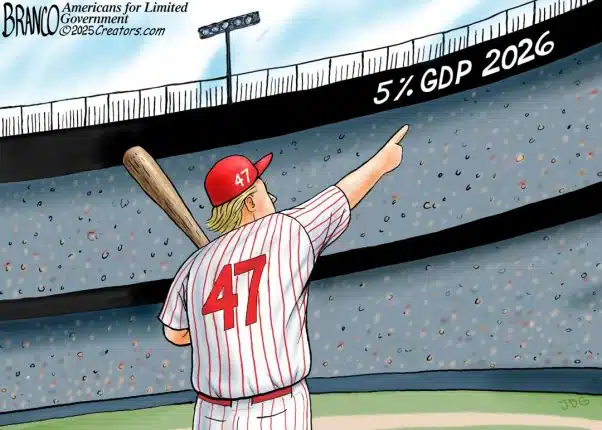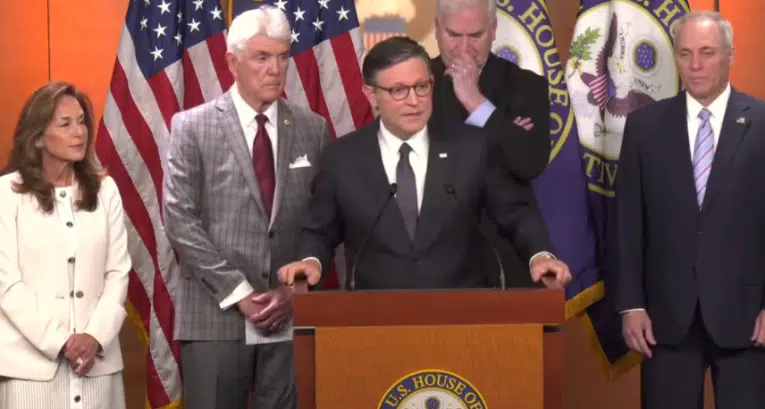By Bill Wilson — If China is going to bail out Europe from its own self-inflicted debt crisis, its premier, Wen Jiabao, wants a few things in return. Namely, it wants World Trade Organization (WTO) “market economy” status conferred on it, which would help its companies in trade disputes, as reported by the Financial Times.
“If EU nations can demonstrate their sincerity several years earlier, it would reflect our friendship,” Wen said. Under WTO rules, China will have such status conferred on it automatically in 2016.
Leaving aside whether China can even afford to bail out Europe — although it is sitting on over $3 trillion of foreign exchange reserves, the consolidated debts of Portugal, Ireland, Italy, Greece, and Spain total over €3 trillion — China’s posture in this situation should be cause for major concern.
This is blackmail.
If Europe accepts a Chinese bailout now, what other strings will be attached later?
In the U.S., China holds about $1.4 trillion of treasuries. When the sovereign debt crisis comes to our shores, as surely it will, what sorts of conditions might China attach to helping the U.S. to refinance its debts? Taiwan? South Korea, perhaps?
Just one more reason for the U.S. to begin paying down its gargantuan $14.7 trillion national debt. As Solomon noted in Proverbs 22:7, “the borrower is a slave to the lender.”
By borrowing $4.5 trillion from overseas, the U.S. has unnecessarily exposed itself to this direct threat to its sovereignty. If China were to dump its treasuries, a run on dollar-denominated assets could follow, wrecking the economy and leading to hyperinflation here at home.
Even if they were to simply stop buying new treasuries, the impact could be tremendous.
The UK Telegraph’s Ambrose Evans-Pritchard warns of this outcome, pointing to recent remarks by Chinese central bank official, Li Daokui, who said at the World Economic Forum, “The incremental parts of our foreign reserve holdings should be invested in physical assets… Once the U.S. Treasury market stabilizes we can liquidate more of our holdings of treasuries.”
Li was not the first Chinese official to suggest dumping its dollar holdings. Zhou Xiaochuan, the head of the People’s Bank of China recently said, “Foreign-exchange reserves have exceeded the reasonable level that our country actually needs.”
Zhou noted that China’s stockpiling cash is “feeding inflation and becoming difficult to manage”. To be certain, China is suffering from an inflation problem, already up over 5 percent, not to mention a tremendous real estate bubble that threatens its very financial system. It needs to figure out a way to restore price stability.
Zhou’s sentiments were echoed on April 23 by Tang Shuangning, chairman of China Everbright Group, who wants the reserves be restricted to between $800 billion to $1.3 trillion and the rest of the money reinvested.
Tang “suggested five channels for using the reserves, including replenishing state-owned capital in key sectors and enterprises, purchasing strategic resources, expanding overseas investment, issuing foreign bonds and improving national welfare in areas like education and health,” as reported by Xinhua.
Xia Bin, another Chinese central banker suggested that $1 trillion of foreign exchange reserves would be sufficient. He too called for the reserves to be used more “strategically” to acquire hard resources and technology for the Chinese economy.
Plain as day, China wants something besides principal and interest on its debt holdings. It does not want a pile of useless paper anymore.
So, the demands begin. The question is: Do we want any country to hold this kind of leverage over our heads? Can we expect to remain a free and independent nation for long under these circumstances?
The dragon is showing its teeth.
Bill Wilson is the President of Americans for Limited Government. You can follow Bill on Twitter at @BillWilsonALG.






